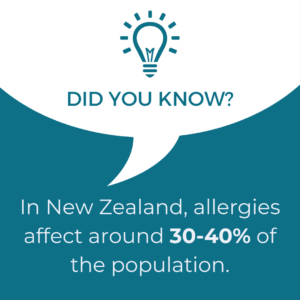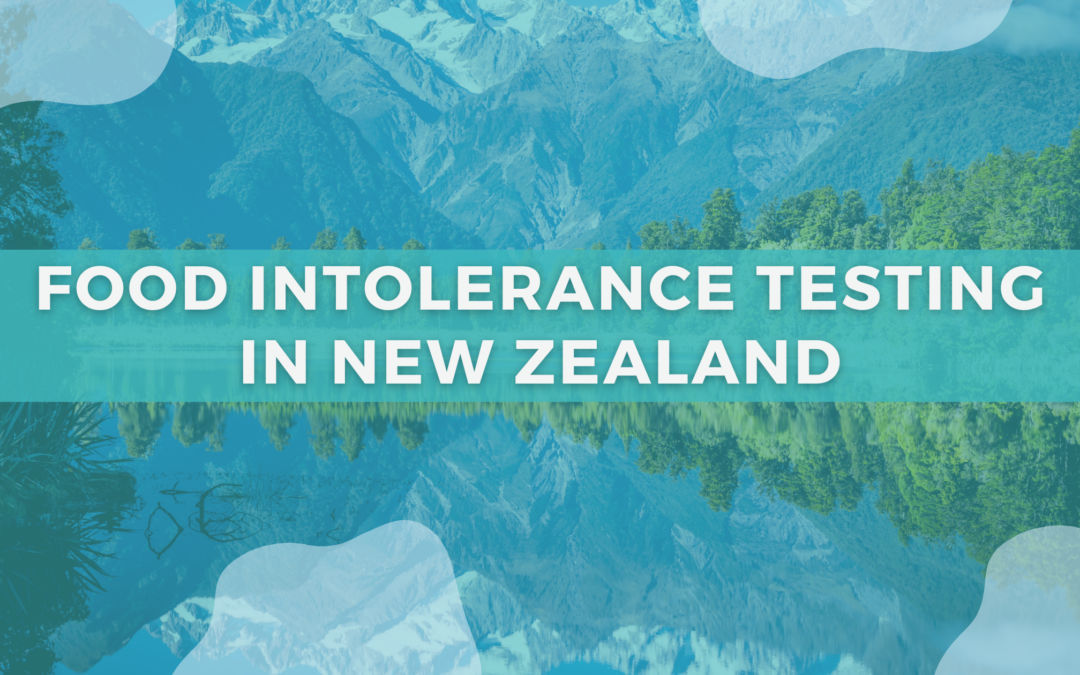Allergies and intolerances are rampant globally. In New Zealand, allergies affect around 30-40% of the population. The most common cause of allergies is airborne dust mites, pollen and cockroach droppings. Food allergies are also common among children affecting around 10% of children below the age of 5.
Food allergy and intolerance testing are essential for many people in New Zealand, considering that a large population is living with these conditions. Allergies unleash related conditions like eczema, which significantly impact one’s life. Allergies can also be life-threatening, so knowing your allergies is best.
Food intolerances, on the other can hand, can make your life hard. They affect one’s quality of life and those around you because you’ll always be suffering from never-ending symptoms.
Food intolerance tests New Zealand.
A food intolerance is an uncomfortable reaction due to the digestive system being in awry. When you have a food intolerance, you can consume a certain amount of the trigger food and not suffer from intolerance symptoms depending on your tolerance level to it. However, the same doesn’t apply to food allergies.
Food intolerance isn’t life-threatening, but it can reduce the quality of your life and mess up your health. Symptoms of food intolerances are not always observed immediately but rather after a few hours or upto three days.
The time it takes for the symptoms to show up often interferes with the diagnosis, making it difficult to pinpoint the extract trigger food. However, an Intolerance Test will help you narrow down to one or more foods if you have more than one food intolerance.
Most symptoms of food intolerance centre around the gastrointestinal tract. These include symptoms like:
- Diarrhoea
- Nausea /vomiting
- Gas
- Stomach pain
- Fatigue
- Joint pain
Food intolerance is caused by either the body being sensitive to tha specific food or the lack of enough enzymes to digest the food you’ve consumed. For example, when one suffers from lactose intolerance, they have insufficient lactase, an enzyme that breaks down milk sugar (lactose).
In some other cases, the actual cause of food intolerance is unknown. However, some compounds or proteins in food always trigger intolerance symptoms. When you have a food intolerance, your food isn’t broken down in the small intestines and thus pushed into the colon.
When in the colon, the food ferments (forming gas) and retains water (causing bloating). When food is in this stage, you get symptoms of food intolerance and suffer from general malaise with symptoms like gassiness, diarrhoea, bloating, and sometimes a distended stomach.
Sometimes food intolerance results from specific compounds present in carbohydrates that don’t digest and thus move on to the large intestines causing intolerance. Researchers are still trying to find specific compounds that cause this, but it’s not yet a sure cause for food intolerance.
Getting an Intolerance Test is essential because most people suffer from intolerance symptoms and never know what’s causing these symptoms. For example, in New Zealand, international research indicates that around 100,000 people have coeliac disease. Of this number, 30,000 of them are likely children under 18. However, even with this data, more people with coeliac are unaware of their intolerances.
Food allergy testing in New Zealand
Food allergy occurs when your body’s immune system reacts to a protein in a food. When your immune system identifies the protein you’ve inhaled or ingested, it releases antibodies to fight off it as if it were a virus or bacteria. When your body attaches proteins to your food in this manner, they end up causing allergy symptoms that are widespread throughout your body.
There are common food allergies all around the world. These food allergies are the ones that affect most people suffering from allergies, especially those with more than one allergy.
Common food allergies include:
- Fish and shellfish
- Nuts and tree nuts
- Soy
- Wheat
- Eggs
- Milk
Almost 90% of food allergies are attributed to these eight categories of foods. While children predominantly suffer from allergies, they tend to outgrow these allergies when they enter their teenage years. However, if one develops a food allergy in adulthood, they’re less likely to grow them and need to avoid these trigger foods.
When you’re suffering from a food allergy, even trace amounts of that food can affect you and cause reactions. That’s why it’s essential not to share utensils that have been used serving or preparing food you’re allergic to. An allergic reaction can occur within minutes of an allergen entering the body, upto two hours after.
Food allergy may reactions range from mild to severe depending on the individual. Common food allergy symptoms include:
- Swelling of face, lips, and or hives
- Welts or hives on the skin
- Abdominal pain
- Vomiting
- Anaphylaxis
- Trouble breathing
Anaphylaxis can be life-threatening and needs one to have na EpiPen at hand for such emergencies. You can get it from your doctor. Common food that causes anaphylaxis includes tree nuts, milk, egg, and peanuts.
In New Zealand and Australia, food allergies affect 5-10% of children and 2-4% of adults. Children are mainly allergic to cow’s milk and eggs. However, as stated before, most children outgrow these allergies in their teenage years. Allergy Testing is a wise way to learn of your food allergies so you can manage your diet.
How to prevent food allergies
There are no proven ways to prevent food allergies. However, there are specific measures you can implement to reduce the risk of getting food allergies. These include:
- Pregnant and breastfeeding women should include common allergens in their diet to help the breastfeeding child form tolerance against these common food allergies. Mothers should only do this with foods they’re not allergic to.
- Getting an Allergy Test which will help you know your potential food allergies and you can then take measures to avoid these allergens.
- Exclusively breastfeeding a child until they’re six months old helps them form a strong immune system reducing the risk of getting food allergies.
- Once the mother starts weaning the baby, they should introduce these common food allergens into their diet to help them form a resistance against them as early as possible.
Final thoughts
Even though a vast population in New Zealand suffers from food allergies and intolerances, most people don’t have a proper diagnosis and often end up suffering from symptoms without knowing the root cause. Getting proper Allergy and Intolerance Tests can help everyone take better care of their health and form healthier eating habits that don’t cause them adverse symptoms or affect their daily lives.


